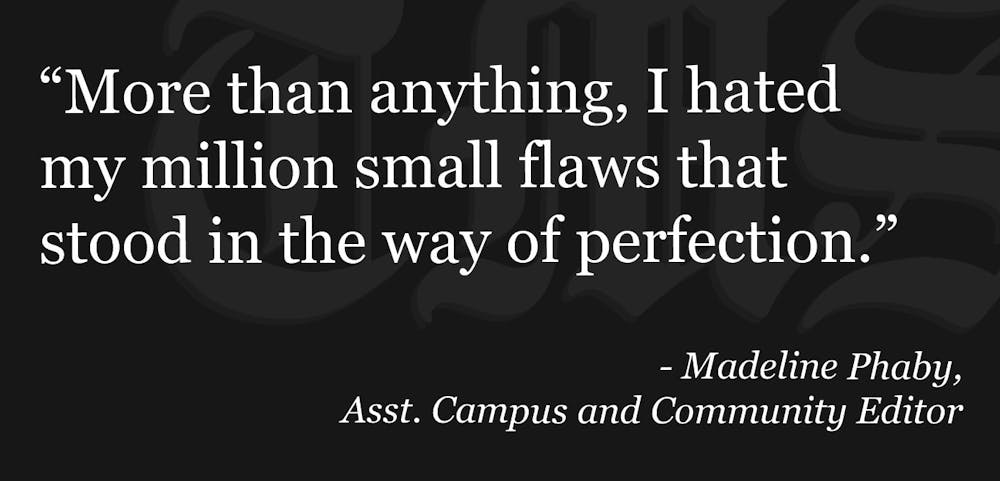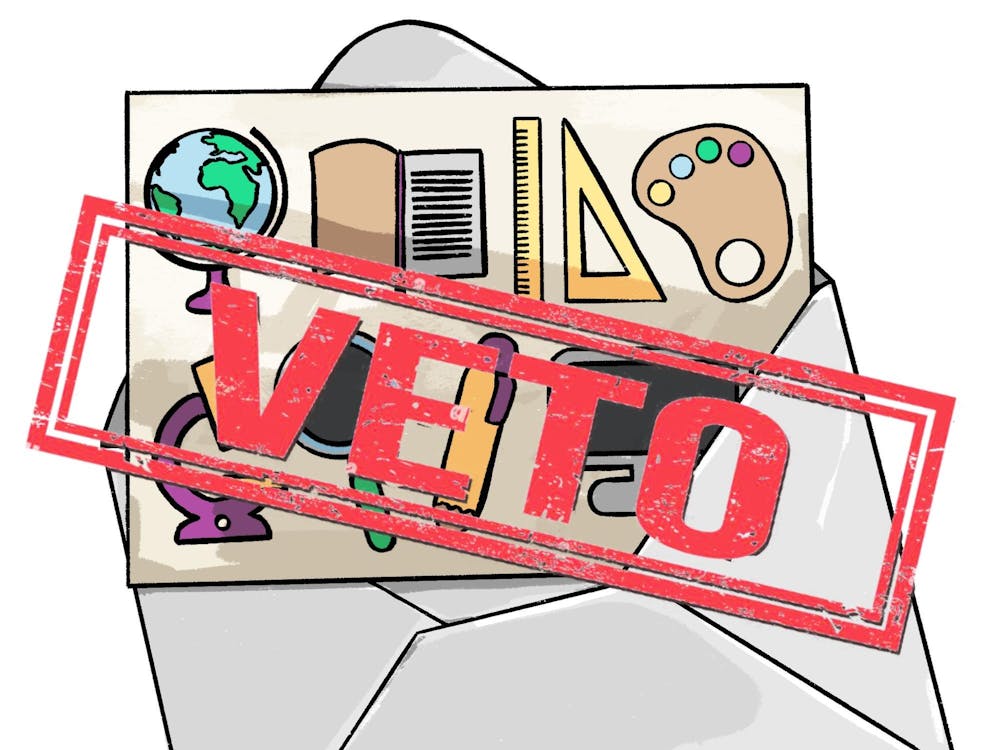I was an angry kid.
My parents threatened to cut my somewhat-successful softball career short every time I sent my aluminum bat flying across the dugout in yet another fit of rage, which could be triggered by anything from striking out to making an error in the field to receiving constructive criticism from my coach.
“If you’re gonna get this riled up every time you mess something up, you’re not gonna play anymore,” my dad would snap at me.
So I stopped with the outward displays of anger and began internalizing everything. As I entered my early teenage years, my parents applauded me for finally “fixing my temper.”
Unfortunately, my innocent, childish rage replaced itself with bitterness, jealousy and brutal perfectionism.
During my high school years, I carefully crafted my “brand” to reflect the type of person I’d always wanted to be: a bold, outspoken woman who was funny, effortlessly intelligent and didn’t give a single damn about what the rest of the world thought.
As far as I could tell, it worked. I put on a front of toughness to hide my ever-multiplying insecurities, and many of my classmates would likely tell you that I was kind of a bitch.
I’m no longer proud of that label, but at the time, I figured it was better to be seen as cold and aloof than anxious and weak.
In reality, I was anxious, weak and many other unsavory things that I wanted so badly to hide. More than anything, I hated my million small flaws that stood in the way of perfection.
But unlike many of my peers who had been poisoned by the beauty standards set by photoshopped images of models, the perfection I sought wasn’t physical. It was academic.
While I knew that, logically, perfection was unattainable, the standards I used to (involuntarily) set for myself were extremely close.
For me, anything other than an A might as well have been an F. I continued to obsess over past classes I didn’t receive A’s in and kicked myself as I thought of all the things I could’ve done to boost my grade. Even classes I really enjoyed were forever tainted, simply because my grade was lower than I’d hoped.
Enjoy what you're reading?
Signup for our newsletter
I knew I wasn’t alone with the intense pressure I put on myself to excel, but that didn’t make things any less difficult.
I still called my poor mother regularly, fretting and crying over an A-minus in a history class because if my history major GPA got too low, I wouldn’t get into a good grad school and, in turn, would never find a job.
I still rarely went out and had fun because I felt obligated to spend all my time studying.
I still resented my best friend, who would always get A’s in every class because she is a natural genius and an incredibly hard worker. I tried as hard as I could to stop the jealousy and just be happy for her, but I couldn’t.
Three semesters ago, I earned straight-A’s for the first time in my college career, and I’ve now made the President’s List three consecutive semesters after “only” making the Dean’s List my first two semesters. I’m proud of that accomplishment, but not of how much I sacrificed to get there.
As I enter my twenty-first year of life, I’ve decided that I’m done. No more bitterness, no more jealousy and no more impossibly high standards.
I’ve finally sought out professional help to address these issues I’ve dealt with for my entire life, and I’m developing healthier coping mechanisms for my wild emotions. I’m obviously not completely “healed” yet, but I already feel like a whole new person.
Though I’ll likely always hold myself to a high standard and am probably physically incapable of slacking off, I’m determined to make this the year I let myself have the fun college experience I want and deserve.
This shift may result in a couple A-minuses — or, hell, even a B or two. But hey, that’s OK.
Because, despite all my imperfections, I’m pretty fucking dope.




